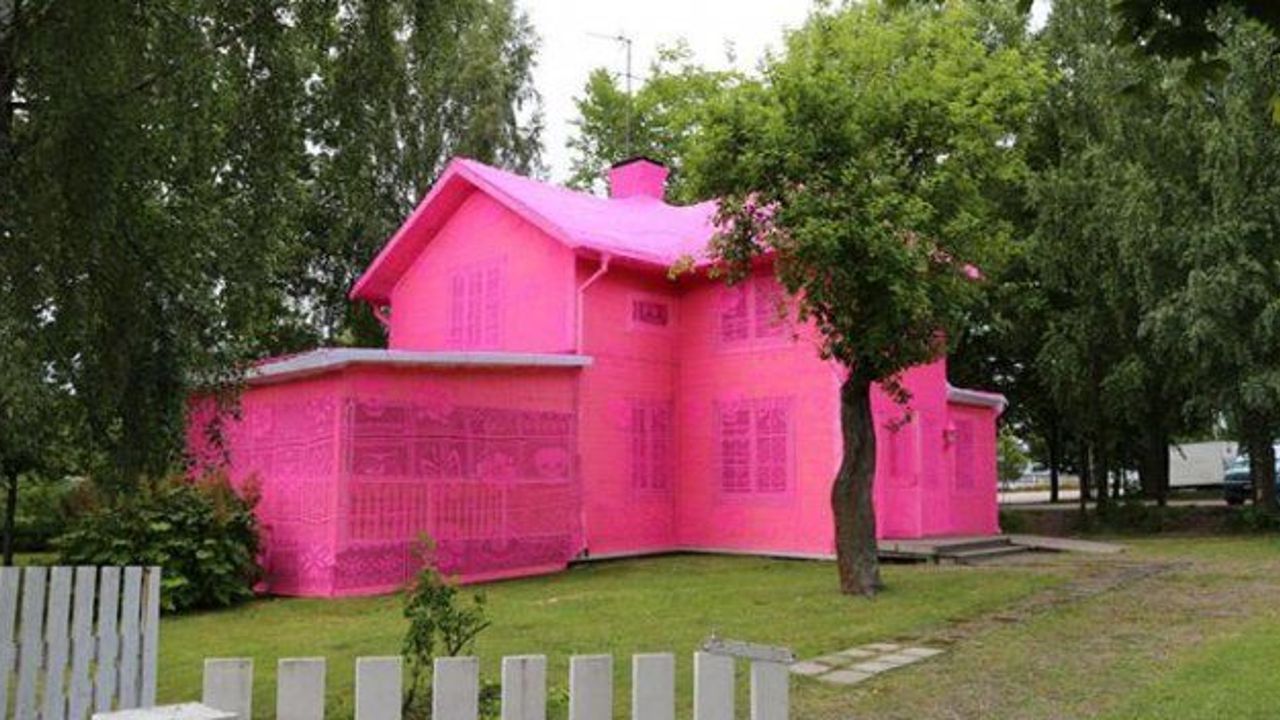Refugee women find solace in Swedish crochet project
There is little doubt that walking many streets in Syria is a life-threatening experience.

Syrian people experience bombing raids on a regular basis as news outlets provide the rest of the world with horrific images of war and suffering.
The death toll is continuously rising and families’ homes are being destroyed.
Such was the case for Lama Alkassas, a former Homs resident now living in Sweden.
With a deteriorating situation in her home city, Lama was afraid of being arrested. The military harassed her as she moved from one area to another as she attempted to escape the bombs.
After her home was destroyed, she decided to make the dangerous journey across the sea to Europe. Knowing her husband was already in Sweden, she crossed to Turkey and travelled through seven other countries before reaching a small town in southern Sweden called Avesta.
“When I came here for the first time I thought it was very beautiful,” she told Anadolu Agency.
“I said to my husband: ‘Where are all the people?’. It feels so empty. In Syria we’re used to very crowded streets, but in Avesta I think they need more people. Sometimes we go to the river and we sit there by ourselves.”
Lama met other refugee women at a center for newcomers waiting to be assigned Swedish lessons.
Despite not knowing if their asylum applications were going to be granted or not, the couple is always searching for activities and other ways to help them integrate into Swedish society.
One day, the manager of the Verket museum in Avesta showed up. He provided information on a project involving Polish artist Agata Oleksiak, professionally known as Olek, and her wish to bring her renowned crochet skills into a contemporary woman’s home.
A week later, the refugee women met Olek to start working on a project for the Verket museum’s annual art exhibition, Avesta Art.
However, Olek found it hard to create something which seemed “too cute” for the real-life situations of women forced to flee their homes.
Therefore, she wanted her installation to be blown up for others to get something of an understanding of what it is like for refugees who have left their homes behind.
Footage of her first project, called In The Blink Of An Eye, shows an intricately decorated home filled with crochet blown apart amid the sound of breaking glass and children’s voices.
’Men build houses, women create homes’
According to the manager at Verket, Olek came back with a strong desire to create something which would give refugees a symbol of hope for a new home, something which would last longer than her previous installation.
She wanted to cover an entire house in pink crochet.
That’s when Lama and her friends were contacted for the Our Pink House project where the plan was to crochet 400 square meters in order to envelop an idyllic Swedish house in central Avesta.
”All six of the women from Syria and Ukraine became a real core team; it was a very inspiring experience,” Verket manager Kenneth Linder said.
”It was also very touching since some of them initially didn’t know how to crochet, but they learned by looking at YouTube videos solely to be able to be part of this project.”
Our Pink House became a project about hope that, one day, people who have been forced to flee will have a new home of their own.
It aims to remind the world what it means to have a home and to empower refugee women at the same time. Or as Olek puts it: “Men can build houses, but women can create homes.”
After spotting the perfect house in Avesta, Olek went on a mission to be able to use it for her project.
As recalled by Linder, Olek is a spirited and persuasive woman. After meeting the house owner at a vernissage in Avesta, Olek successfully got him onboard and as excited about the project as the rest of the team.
Together with Olek’s Polish colleagues, the refugee women started crocheting in July this year, using donated materials. Around one month later, they were able to connect all the different crochet parts together to cover the house.
“Olek shared a lot of her experience with us and she’s a very talented and nice woman,” Lama said. “We had a lot of fun times together and we all hope that we’ll be part of another project with Olek.”
In August, Avesta’s local council threw an event to celebrate people who had contributed to the culture of the city. It was a special moment for Lama and her fellow team members as they were welcomed onstage to receive congratulations for their hard work on Our Pink House.
Linder remembers Lama and her friends being very proud, leaving him extremely impressed with the team.
”I think the best part of this entire experience is the creation of encounters between people,” Linder said and added:
”You notice how powerful things become when people come together and have a common goal. The exchange of experiences was extremely touching and I can tell that the women from Syria and Ukraine have undoubtedly been passionate about this and have felt an immense sense of meaningfulness.”
Lama still crochets in her spare time. She also started playing tennis and is taking Swedish lessons in the mornings. She has been in the country a little over 10 months and is currently waiting for a decision from the Swedish migration agency regarding her asylum application.
“I hope to continue working on projects like these and I’m ready to help in the future,” she said.
“I want to say a big thank to Olek, Avesta city council and the Swedish people for helping us and taking such good care of us. People here are very nice and we really appreciate the assistance we’ve received.”
Anadolu Agency






